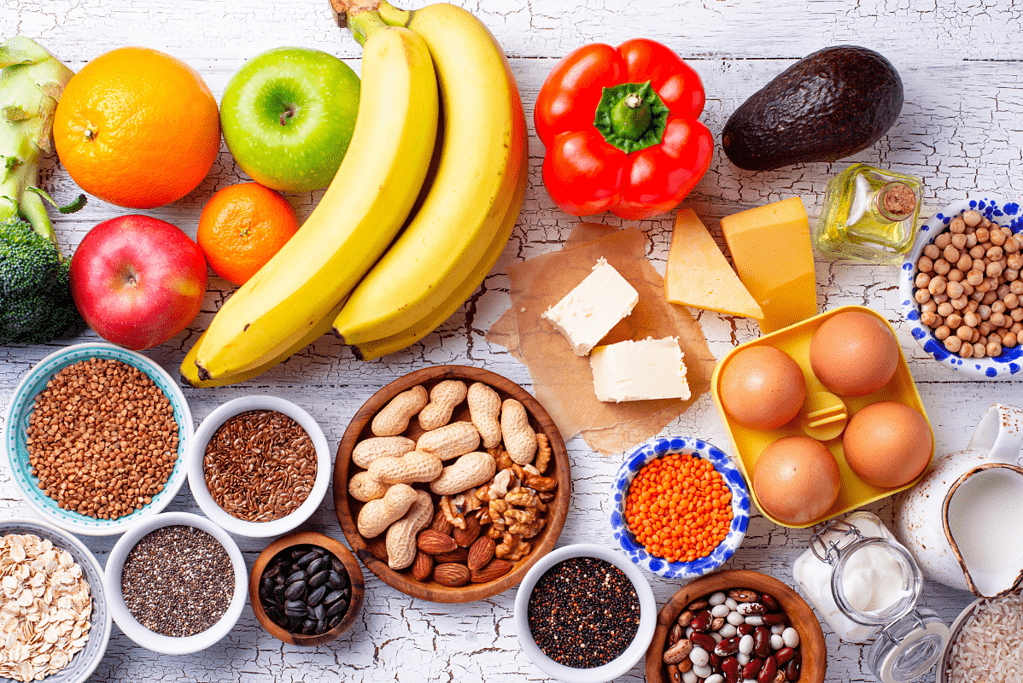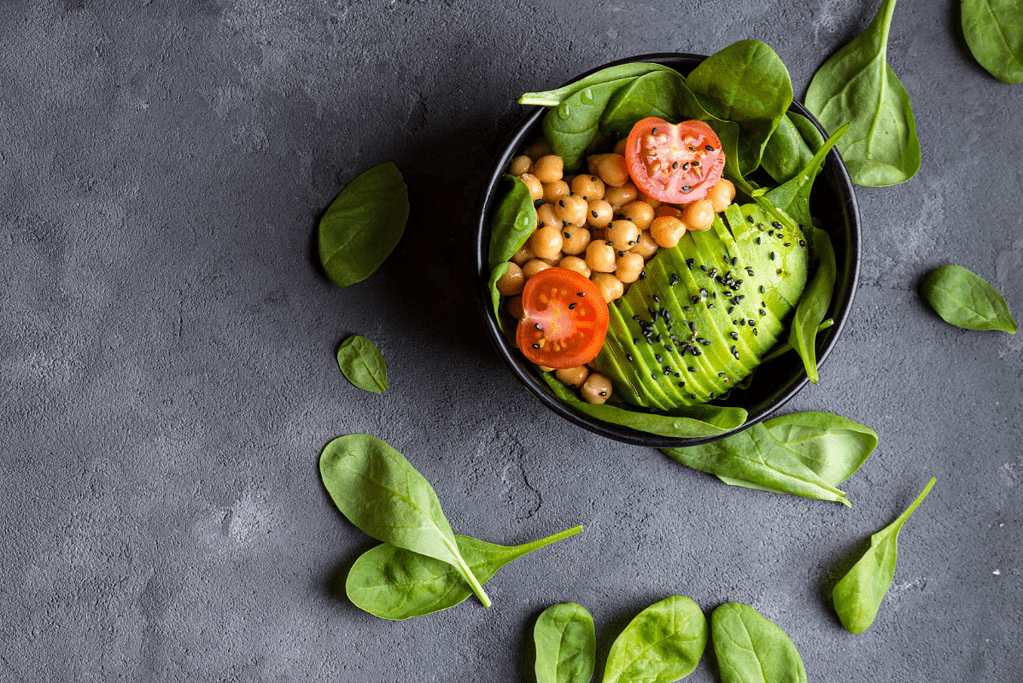How to stop thinking about food? This is a question that many people ask themselves on a daily basis. It can be very difficult to break the habit of constantly thinking about food, especially when you are not hungry. Food occupies a lot of our time and thoughts, and it can be tough to get rid of those thoughts altogether.
There might be many reasons why you think about food so much and some of them might not even be related to hunger. For example, when you are bored or doing something that requires a lot of attention, it is easy for your mind to wander off into thoughts such as “what should I eat next’?
Or maybe there has been an important event in your life recently like getting married or having children which means more responsibility for taking care of others than yourself… Whatever the reason may be, these tips will help!
I found that my constant dieting led to me constantly thinking about food especially when I was not hungry. I think I finally developed a healthier relationship with food and lost 80 pounds in 8 months once I learned how to stop thinking about food all the time. And achieved long-term weight loss.
Two Pathways to Appetite Control
Before I share my tips and tricks on how to stop thinking about food all the time, let’s discuss the two primary pathways that control our appetites: the homeostatic pathway and the hedonic pathway.
These two pathways work together to help us maintain a healthy appetite. However, sometimes these pathways can become dysregulated and this can lead to problems with eating.
The Homeostatic Pathway
The homeostatic pathway is controlled by a hormone called leptin. Leptin is produced by our fat cells and its main function is to regulate energy balance in our body. When we have enough energy, leptin signals to our brain that we don’t need to eat.
On the other hand, when we don’t have enough energy, leptin signals to our brain that we need to eat. This pathway is very important because it helps to keep our body in a state of equilibrium.
The homeostatic pathway is stimulated when your body is in a calorie deficit. Calorie deficit like that is experienced when you are on a restrictive diet.
The Hedonic Pathway
The hedonic pathway is controlled by a hormone called ghrelin. Ghrelin is produced by the stomach and its main function is to stimulate appetite. When we are hungry, ghrelin signals to our brain that we need to eat. This pathway is important because it helps us to seek out food when we need it.
However, the hedonic pathway can nullify the homeostatic and can cause food cravings, especially for hyperpalatable foods (e.g., fatty, salty snacks, or sugary foods).
For me, understanding how these hunger hormones control your appetite can also help you control your food thoughts.

How to Stop Thinking About Food
Food is a huge part of our lives, but it doesn’t have to be the only thing that we think about. There are ways to manage food obsession and strong food cravings and start living more healthily and happily. Try out some of these tips and see which ones work best for you.
There is no one-size-fits-all answer to how to stop thinking about food, as everyone’s relationship with food is different. And if you need any extra help or support, don’t hesitate to get professional help.
1. Why Are You Thinking About Food?
The first step is to figure out why this is happening! If you’re constantly thinking about food, chances are there are areas of your life that needs to be addressed. Is it because there’s something else going on for which food has become an escape? Excessive thinking about food may also be a sign of other issues such as depression and anxiety.
If you are depressed or anxious, then this may cause a lack of energy and an inability to focus on anything other than eating. It’s important not to neglect those feelings because they will only make it harder for you later down the road!
You need professional help if these thoughts persist after trying some of our tips below. Speaking with someone who can help address the root cause could make all the difference.
2. Identify Your Triggers
Another thing that can help you to stop thinking about food is to identify your triggers – what makes you think about food when you’re not hungry? Is it seeing certain types of foods or pictures of foods? Is it being around others who are eating? The food court in the mall? The smell of food?
Once you know your triggers, you can work on avoiding them or dealing with them in a different way. For example, if seeing pictures of food makes you think about eating even though you’re not hungry then try unfollowing those accounts on social media so that they don’t pop up on your feed anymore.
3. Keep a Food Journal

One way to stop thinking about food all the time is to be mindful of when you are actually hungry and when you are just eating out of habit or boredom. Try keeping a food journal where you write down everything that you eat and drink, as well as how hungry or full you felt before and after eating. Recording your calorie intake will help you become more aware of your body’s signals for hunger and fullness.
In addition, try paying more attention to how you feel before, during, and after eating. Are you engaged in emotional eating? If you’re bored or sad, then those feelings aren’t likely to go away just because of food; instead, it’s better for them if they were addressed directly by talking about what’s bothering you with someone else (a friend/family member).
To keep track of your progress, make sure you review your food journal at least once per week so you can see if anything needs changing.
4. Mindful Eating
Mindful eating is a great way to stop thinking about food. It’s simple yet effective. First, start by focusing on the present moment with all of your senses – smell what you’re smelling right now and hear any sounds around you like bird songs or traffic noise outside.
Then focus on what’s happening inside as well; feel how your body feels while sitting at this table (maybe noticing things such as heart rate). Next comes an awareness check where one should ask themselves “Am I hungry right now?”
If yes, then continue eating mindfully by really tasting each bite as it goes into your mouth before swallowing, but if not then stop eating because there’s no need for that food anymore. Try mindful eating at your next meal and see if it helps.
5. Intuitive Eating
Intuitive eating is a new way of thinking about food and weight loss that doesn’t involve deprivation or restriction. It’s all about listening to your body’s needs and giving it what it needs when it needs it.
Intuitive eaters don’t count calories or follow restrictive diets; instead, they focus on eating when they are hungry and stopping when they are full. This approach to food can be incredibly liberating, and it can also help you lose weight and stop thinking about food.
6. Good Fun Food Ratio
You may have heard this before, try eating healthy foods 80 – 90% and fun food 10 – 20% of the time to help you stop thinking about food. Giving yourself permission to have some fun food can make a huge difference in how you think about food and your eating habits. It’s a start to having a healthy relationship with food.
I also like that it’s called fun food. No particular food is bad or junk food. It’s a small thing, but for me, it’s works!
7. Eat a Healthy Diet

Make sure you have a balanced and healthy diet and eat enough calories. Eating nutritious foods will help you feel better both physically and mentally, which can reduce your cravings for unhealthy foods.
Making better food choices throughout the day can help distract from hunger pangs that might pop up when someone thinks too much – especially if they have been dieting recently!
The best way is to start the day with a big breakfast and by packing snacks like fruit or vegetables to have when you’re on the go. This way, you’ll never be too hungry or tempted to reach for unhealthy foods.
Make healthier choices, choose whole foods over processed ones whenever possible, and try to cook at home more often. Also, try not to keep unhealthy foods in your house. If they’re not readily available, you won’t be as tempted to snack on them.
8. Eat More Protein and Fiber
Both protein and fiber will increase your satiety. If you feel full you’ll be less likely to feel hungry and think about food.
Also, protein may lower your levels of gherlin, the hunger hormone. Furthermore, protein also increases your appetite-suppressing hormones.
9. Eat Regularly
Sometimes when we are not hungry, but just thinking about food all the time, it might be because we haven’t been eating regularly throughout the day. Try to have three meals and two snacks every day so that your body doesn’t go into starvation mode and start craving food more. Some people find it helpful to eat smaller meals instead of three meals.
10. Eat When You’re Hungry
A good idea is to be mindful of your hunger cues. Don’t be afraid to eat when you’re hungry. If you wait until the very last minute, it can make those cravings even stronger and harder to resist. Give yourself permission to enjoy healthy snacks and food when you’re hungry.
11. Don’t Diet
Restricting yourself from specific foods or being on a fad diet can actually make you think about food even more. Make sure you eat enough food for your body. If you are on a diet, try not to have too many food restrictions and allow yourself to have your favorite foods every once in a while so that your mind isn’t always focused on those foods which might be off-limits.
12. Drink More Water

One easy way to stop thinking about food is to drink more water. Hunger or cravings for food can sometimes be a result of thirst. So make sure you drink plenty of water. Water can also reduce your craving for hyper-palatable foods, especially salty foods.
13. Distract Yourself
Distract yourself when you find yourself thinking about food unnecessarily. Force yourself to think about something else by focusing on your breathing or counting to ten slowly. The key is to keep your mind busy and not give it time to wander off into thoughts of food.
When you are feeling tempted to reach for that candy bar or ice cream, take a deep breath and focus on the present moment. Notice what your body feels like, what you can smell and see around you, and how your stomach is feeling. This will help you stay more focused on the here and now rather than getting lost in any thought about food.
Another way to stay in the present is by practicing mindfulness meditation. This involves focusing on your breathing and being aware of each individual sensation that you experience. You can practice mindfulness anywhere – while walking or eating,
14. Get Busy
Another great way to stop thinking about food is by staying busy. If your mind is occupied with other tasks, then you are less likely to think about food all the time. Find activities or hobbies that you enjoy and make time for them every day.
Try going for a walk, reading a book, listening to music or podcasts or audiobook, watching television, or doing anything that will keep your brain active and distracted from thoughts of food. When you have something else to focus on besides food, it will be easier not to think about food as much.
15. Exercise Regularly

Exercising not only helps with weight loss but also reduces stress levels, increases energy levels, and gives your brain something else to focus on besides food. Try going for 30 minute walks at least three times per week or doing other activities like yoga or Pilates if walking is not your thing. The best thing is that physical activity will help to release endorphins that naturally make us feel happy.
16. Get Plenty Of Sleep
Getting enough sleep is another way to stop thinking about food. When we don’t get enough rest it can cause our bodies to crave carbohydrates because they give us energy quickly (but then crash soon after). Try going to bed at least an hour earlier each night and sleeping for at least eight hours.
17. Be Patient
Finally, give yourself time. This isn’t going to be an overnight process, so don’t expect it to happen all at once or even within a few weeks. It takes practice and patience to stop thinking about food, but you’ll get there eventually!
Find What Works For You

Food is a great source of both energy and pleasure but it can also be something that we use to cope with uncomfortable feelings like stress or boredom. For some people, this coping mechanism becomes an addiction that’s hard to break – and the cycle of bingeing on food followed by extreme dieting further perpetuates their unhealthy relationship with it!
Luckily there are many different ways that one can try when it comes to how to stop thinking about food constantly. However, these methods take practice so don’t expect immediate results overnight It’s important to find what works best for you and to stick with it; but most importantly, don’t be afraid to ask for help if needed!
Remember too that no one person’s journey looks exactly like another person’s either as everyone has different needs, desires, or goals so don’t be too hard on yourself – just try again the next day! You can get to a healthy weight and have a good relationship with food!



